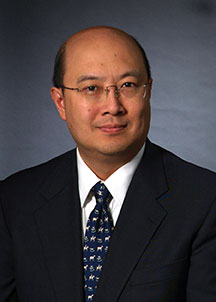INTERVIEW

“In the end we all have the same goal, which is to forecast uncertain market prices. We should be able to learn from each other.”
The Chronicler Of The Heretics
Andrew Lo And The Future Of Technical Analysis
Andrew Lo, who is the Harris & Harris Group Professor of Finance at the Massachusetts Institute of Technology’s (Mit) Sloan School of Management and director of Mit’s Laboratory for Financial Engineering, and founder and chief scientific officer of the AlphaSimplex Group, a Cambridge, MA–based quantitative investment management company, is a radical of sorts, an academic who believes in technical analysis. In his latest work, The Heretics Of Finance (cowritten by Jasmina Hasanhodzic), more than a dozen notable technicians are interviewed about their views on technical analysis and how it influences their trading. Interviews aren’t unusual — but what Andrew Lo wants to do with the sum of their knowledge is.
Stocks & Commodities Editor Jayanthi Gopalakrishnan and Staff Writer Bruce Faber spoke with him via telephone on February 6, 2009.
Andrew, what got you interested in technical analysis??
I’ve been interested in technical analysis since high school. It was a bit of a hobby in terms of looking at various charts and patterns and trying to understand what implications they might have for the markets. I actually did not get a lot of time to devote to it because as part of my doctoral program in economics, I was taught early on that technical analysis was a waste of time. I was still interested in it, but certainly that interest was dampened by the training I received as an economist.
JG: When did that change?
It wasn’t until I was an assistant professor at the Wharton School and started doing original research on testing the Random Walk hypothesis that it became clear to me that, first of all, the Random Walk was not a good model for stock market prices, and second, if the stock market was not described by Random Walk, then maybe there was something to all of these technical patterns I had read about. So I got interested again in the possibility of technical analysis having something to say about financial markets. And shortly after that, I began doing some direct research on technical indicators.
JG: Many of our readers are diehard technical analysts and may not be that familiar with the Random Walk hypothesis, so can you explain what it is?
Sure. It was an idea developed in the 1950s and 1960s theorizing that market prices are unpredictable, at least as applied to the financial markets. From the economic perspective, the reason why is that many individuals are trying to forecast them, and the more that people try to forecast them and incorporate their information into market prices, the less easy it will be to predict and the more likely the prices will look random. So the theory of the Random Walk basically says: Since so many people are trying to predict markets, and since information is therefore incorporated into market prices, you cannot predict market prices. So if you can’t predict market prices, then you might as well give up on technical analysis as well as other forms of active investment management.